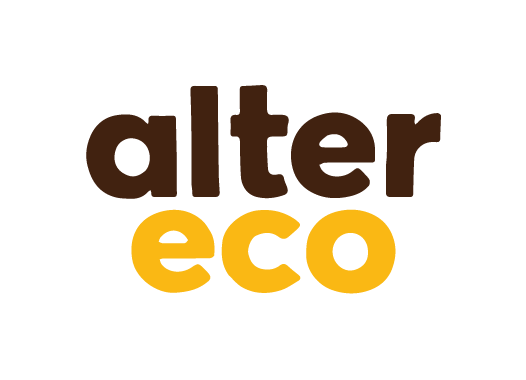

Alter Eco LLC

Texas, United States
January 2009
Food products
Wholesale/Retail
United States
Alter Eco is a food company dedicated to mitigating climate change through regenerative agriculture and carbon sequestration. Our mission is to shockingly delight and inspire the world with the cleanest, greenest snacks on earth. As a Public Benefit Corporation, we embrace sustainability through Fair Trade sourcing, organic and non-GMO ingredients, compostable packaging, and carbon in-setting via reforestation programs. We are a chocolate-centric company, crafting chocolate that thrives in regenerative ecosystems, uses clean, organic ingredients, and is wrapped in compostable or sustainable packaging. Our goal is for our chocolate to restore the planet rather than deplete it. All our chocolate products, available in North America, Australia, and Canada, are USDA Certified Organic, Fair Trade Certified, Climate Neutral Certified, non-GMO, Certified Gluten-Free, and Plastic Neutral Certified. Additionally, we are rapidly expanding in the granola segment. Partnering with our Canadian manufacturer, we source the best ingredients available while working closely with regenerative farmers to incorporate more sustainable practices. Our granola products are also USDA Certified Organic, Climate Neutral Certified, non-GMO, and Plastic Neutral Certified. At Alter Eco, we’re redefining what i
Overall B Impact Score
Governance 17.5
Governance evaluates a company's overall mission, engagement around its social/environmental impact, ethics, and transparency. This section also evaluates the ability of a company to protect their mission and formally consider stakeholders in decision making through their corporate structure (e.g. benefit corporation) or corporate governing documents.
What is this? A company with an Impact Business Model is intentionally designed to create a specific positive outcome for one of its stakeholders - such as workers, community, environment, or customers.
Workers 27.0
Workers evaluates a company’s contributions to its employees’ financial security, health & safety, wellness, career development, and engagement & satisfaction. In addition, this section recognizes business models designed to benefit workers, such as companies that are at least 40% owned by non-executive employees and those that have workforce development programs to support individuals with barriers to employment.
Community 45.2
Community evaluates a company’s engagement with and impact on the communities in which it operates, hires from, and sources from. Topics include diversity, equity & inclusion, economic impact, civic engagement, charitable giving, and supply chain management. In addition, this section recognizes business models that are designed to address specific community-oriented problems, such as poverty alleviation through fair trade sourcing or distribution via microenterprises, producer cooperative models, locally focused economic development, and formal charitable giving commitments.
What is this? A company with an Impact Business Model is intentionally designed to create a specific positive outcome for one of its stakeholders - such as workers, community, environment, or customers.
Environment 52.7
Environment evaluates a company’s overall environmental management practices as well as its impact on the air, climate, water, land, and biodiversity. This includes the direct impact of a company’s operations and, when applicable its supply chain and distribution channels. This section also recognizes companies with environmentally innovative production processes and those that sell products or services that have a positive environmental impact. Some examples might include products and services that create renewable energy, reduce consumption or waste, conserve land or wildlife, provide less toxic alternatives to the market, or educate people about environmental problems.
What is this? A company with an Impact Business Model is intentionally designed to create a specific positive outcome for one of its stakeholders - such as workers, community, environment, or customers.
Customers 2.9
Customers evaluates a company’s stewardship of its customers through the quality of its products and services, ethical marketing, data privacy and security, and feedback channels. In addition, this section recognizes products or services that are designed to address a particular social problem for or through its customers, such as health or educational products, arts & media products, serving underserved customers/clients, and services that improve the social impact of other businesses or organizations.